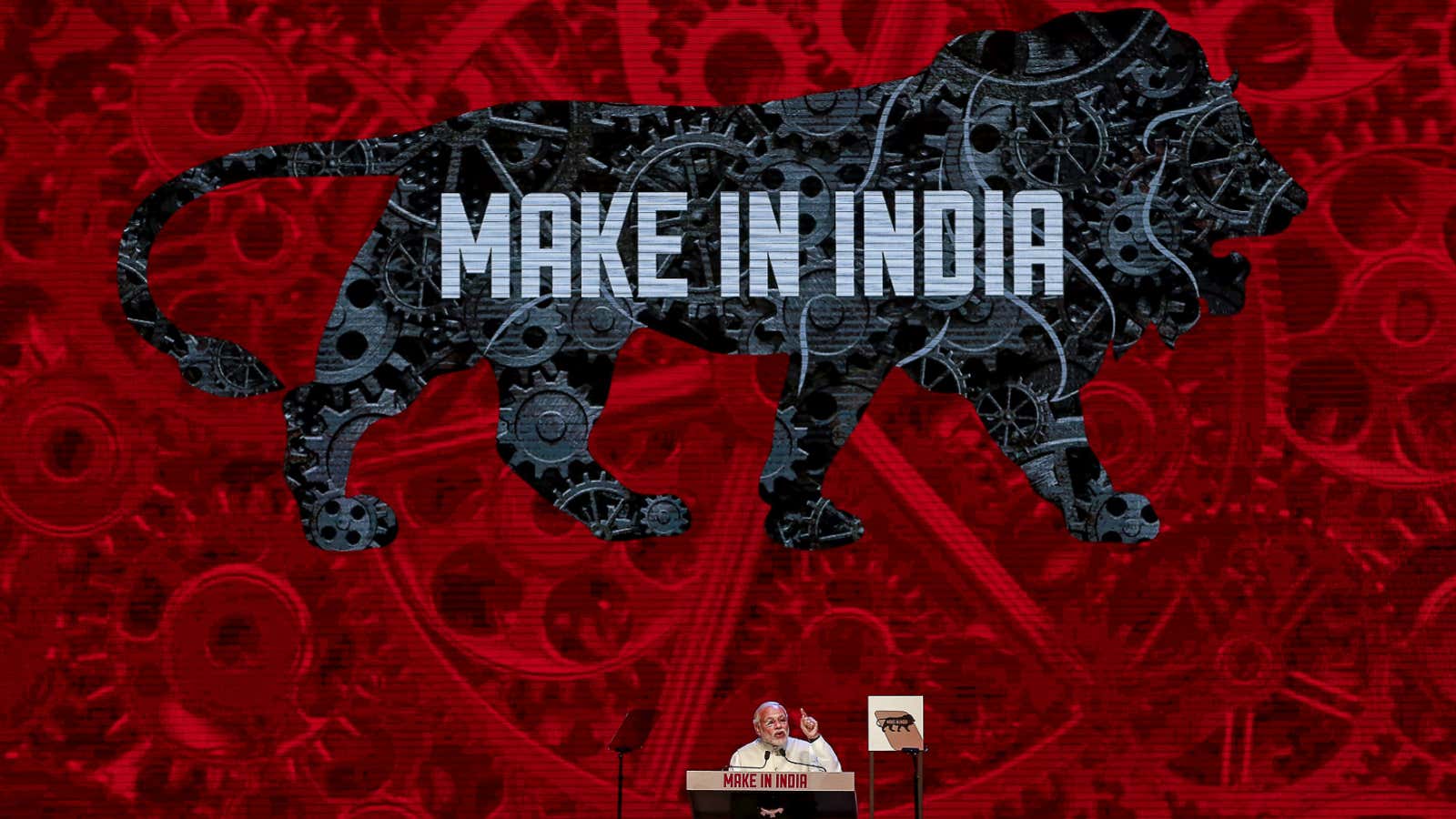India’s lofty ambitions to be seen as business-friendly just went kaput.
In rankings released by the World Bank on Oct. 25, India’s position in Doing Business 2017 list moved up by only one place to 130 among 190 countries. This comes as a dampener for the Narendra Modi government, which, two years ago, publicly announced an ambitious target to improve India’s rankings to within the top 50 by 2018.
The Doing Business report, started in 2002, reviews business regulations and their implementation across 190 countries. In the 2016 report, India’s ranking jumped 12 positions, cheering up the government.
This year, Asia’s third-largest economy slipped in areas such as starting a business, dealing with construction permits and protecting minority investors. Even as India suffered, despite being the world’s fastest-growing major economy, Russia, China, Singapore, South Africa, Nepal, and Brazil paced ahead (pdf) in overall rankings. Here’s how the BRICS fared on the Doing Business list:
The country’s image as a destination for global businesses has been marred by bureaucratic red tape, complex tax structures, and restrictive foreign investment regulations. Since it came to power in 2014, the Modi government has launched a slew of initiatives such as “Make India” to attract investments.
For months now, officials in India’s investment boards have been working closely with the World Bank to provide evidence of having improved its effectiveness in doing business. But none of that seems to have worked much.
The rankings, though, factor in only two cities: Mumbai and Delhi. Besides, the World Bank itself has said that India’s lawmakers have recommended a number of reforms across all states, going beyond the scope of Doing Business.
For now, though, top officials at the country’s department of industrial policy and promotion, a body that monitors foreign investments, seemed miffed. Some even blamed industry feedback for India’s poor performance.
“There were several areas where the World Bank team decided to go by the feedback it had received, although we presented detailed logs to argue that reforms had been implemented..,” industrial policy and promotion secretary Ramesh Abhishek told the Times of India newspaper. “We will continue to engage with the World Bank and address its concerns to include these reforms in next year’s report. We will also engage more with stakeholders to get their feedback on the steps we take.”
But that’s hardly justifies India’s lacklustre showing in the face of all the hoopla.
